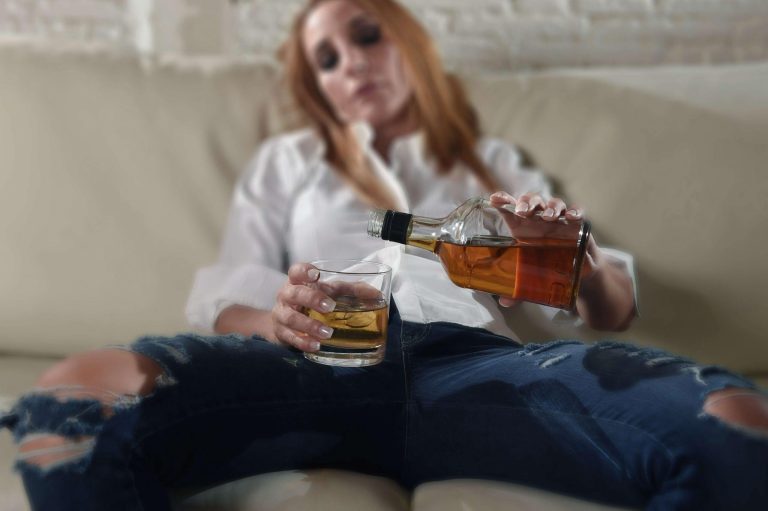Instead of drinking alcohol, plan out the non-alcoholic beverages you can order or make instead. Enjoyable, non-alcoholic alternatives include soda and fresh lime juice, virgin mojitos, soda with fresh fruit, kombucha, or mocktails. At the end of four to six months of treatment with the Sinclair Method, 80% of people who had been overusing alcohol were either drinking moderately or abstaining entirely. For years, the answer was assumed to be no, there is no room for “just one drink” for anyone with a drinking problem. Today, there are programs like Moderation Management, which do allow for a certain level of controlled drinking and have helped many learn to drink safely. Alcohol relapse doesn’t mean that you or your treatment program has failed.
- A relapse following prolonged sobriety can overwhelm the body with lethal toxins and cause drowsiness.
- Unlike other drinkers, alcoholics shouldn’t drink socially.
- Alcohol detox isn’t easy and not everyone can do it on their own.
- Triggers are things that lead a person to addiction and made them dependent on harmful substances for dealing with stressful situations.
- My partner may have stayed out later than she might have liked to accommodate me but it wasn’t ridiculous and there wasn’t any tension.
Questions about drinking again after a couple of months of sobriety + a story.
We publish material that is researched, cited, edited and reviewed by licensed medical professionals. The information we provide is not intended to be a substitute for professional medical advice, diagnosis or treatment. It should not be used in place of the advice of your physician or other qualified healthcare providers. A relapse refers to the deterioration or recurrence of a condition or behavior after a period of improvement or recovery. This term is commonly used in the context of health and mental health, encompassing a range of situations such as substance abuse, mental disorders, and physical illnesses.
- Talk to your therapist, other healthcare provider, or sponsor about how to deal with your anger in ways that won’t cause you to harm yourself or others or turn to alcohol or drugs.
- Although relapse is most common in early recovery, it can happen after many years of sobriety which can be especially dangerous to older adults.
- News of his sobriety journey at VPR’s 11th season premiere party on Jan. 17.
- So if you are wondering, can alcoholics drink, the answer is no.
The stages of alcohol recovery
This phenomenon can be at least partially attributed to simply growing up, or “maturing out” of the behavior; as people grow older, their lives become fuller and their responsibilities broaden. For some, a stricter schedule and shifting priorities make drinking and hangovers less practical. If you do have that one drink, it can be difficult to stop yourself from continuing. Years of sobriety can be lost and the process towards sobriety will need to start again. If you have a compulsion to drink, you will not be able to drink in moderation.

Risk Factors for Relapse
- There are ways to avoid falling into the trap of thinking social drinking is OK.
- So old patterns of behaviour might emerge for you if you start again.
- The end game is that you’re free from the guilt and are at peace with your past.
- It can be a surprise for some, but alcohol rarely has a positive, long-term effect on people’s sex lives.
- While it offers a potentially less daunting goal than absolute abstinence for some, it also carries significant risks that cannot be overlooked.
- In reality, it’s likely a gradual progression for most people, and there are typically three stages of relapse.
Over time, you can stop wondering “can alcoholics drink again? ”, because the benefits to sobriety will become clearer every day. There Top 5 Advantages of Staying in a Sober Living House are temptations in a sober life, but you will learn how to avoid having a first drink that can lead to relapsing into alcoholism.

It can be compared to someone having a flare-up of their diabetes or hypertension symptoms. This is a small list, but any of the points on it would be good signs that you may need outside intervention. However, you may find that you need professional treatment and intensive care, such as through https://fintedex.com/top-5-advantages-of-staying-in-a-sober-living-house/ an inpatient treatment program. If you aren’t sure whether you need treatment or not, a provider can conduct an assessment to determine what level of care you need. A critical step in overcoming this stage of relapse is to practice self-care in its physical, psychological, and emotional aspects.
Can An Alcoholic Ever Drink Again?
Many recovering alcoholics who have tried this find themselves back where they started. That first drink is the trigger to reignite the craving to drink in excess. Attempting to drink socially or in moderation is not worth this risk. Addiction is a developmental disorder that means a person is not actually addicted and alcoholic at birth. Addiction starts with substances that chemically and structurally change the brain making the brain more susceptible to the risks for the development of the disease. Genetics mental illness, childhood trauma, social environment, and early use.
Leave a Reply